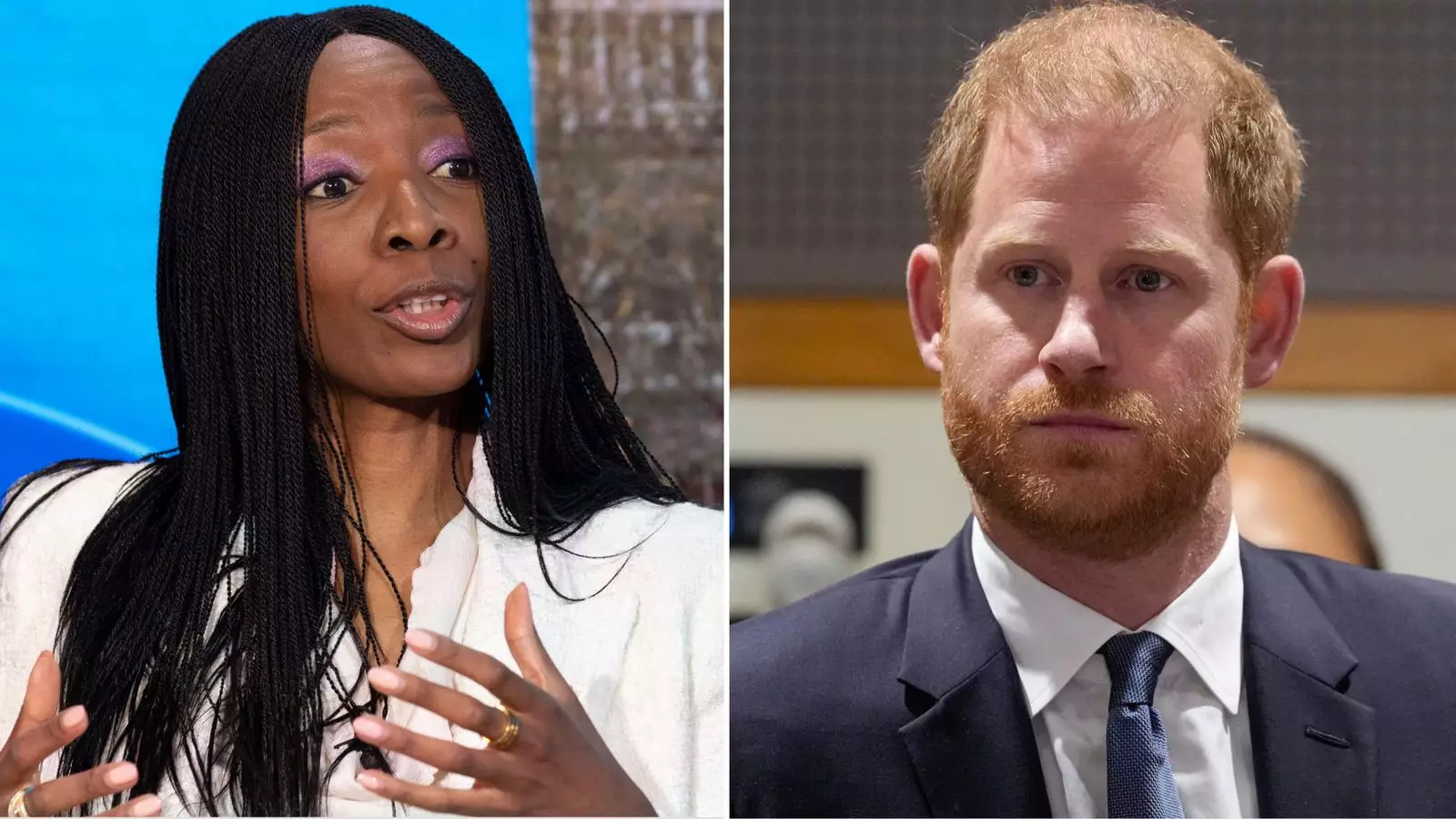The recent turmoil surrounding Prince Harry and the Sentebale charity is shocking, and it throws into stark relief the complications generated when personal reputations clash with public responsibilities. Founded with the noble intent of supporting vulnerable children in southern Africa, particularly those battling HIV and AIDS, Sentebale has become the center of a high-profile dispute. The chair of the charity, Dr. Sophie Chandauka, has leveled serious accusations, claiming that Prince Harry’s actions amount to “harassment and bullying at scale.” Such assertions prompt us to interrogate the fragile relationship between philanthropy, personal branding, and accountability.
Amidst these unfolding events, it’s hard to ignore that the charity, founded in 2006, now finds itself embroiled in a narrative far removed from its altruistic roots. Just as Sentebale was a tribute to Harry’s mother, the late Princess Diana, it now stands as a disturbing example of how quickly goodwill can devolve into discord. Dr. Chandauka’s allegations about a toxic environment, rife with harassment and power struggles, paint a conflicting picture of the charitable intentions that once galvanized the organization.
The Sussex PR Machine Unleashed
Dr. Chandauka’s charge that the Sussex PR apparatus was unchained is particularly striking. To accuse a member of the royal family of manipulating the media for personal gain is no trivial matter; it’s a thumb directly on the scale of public perception. Does this not challenge the very integrity of charitable work, where the focus should be on saving lives, not saving face? Prince Harry’s resignation as patron, alongside the notable exit of the board of trustees, illustrates a fracture of deeply problematic dynamics. The fallout raises questions about the ethical responsibilities of public figures in their charitable endeavors.
The juxtaposition of personal vulnerability versus corporate responsibility in this case is quite revealing. While one can empathize with Harry’s position, the suggestion that he prioritized image-management over ethical leadership shakes the foundations of public trust. It presents a scenario in which vulnerability and reputation are intertwined with charitable institutions, thereby complicating the narrative of altruism.
Accusations, Denials, and “Victim Cards”
The accusations exchanged between Dr. Chandauka and Harry’s associates serve as an indictment of not only the individuals involved but of broader patterns present in organizational hierarchies, especially those rooted in celebrity and status. Dr. Chandauka’s remarks about mistreatment and playing the “victim card” strike a nerve; they open a Pandora’s box of complexities regarding confrontations between those in power and those calling for accountability. It emphasizes a culture where bravery is often met with backlash, significantly when speaking truth to power.
It is heart-wrenching but also alarming to witness someone brave enough to whistleblow being vilified instead of supported. Strong institutions necessitate checks on their leadership to prevent abuses of power, yet it appears that the climate at Sentebale has allowed for egos to run amok. The subsequent rebuttals from former trustees like Dr. Kelello Lerotholi reveal a chasm between lived experiences and official narratives. If the board operated under a veneer of respect while silencing dissent, the charity’s future appears increasingly precarious.
The Future of Sentebale: Charitable Work Under Siege?
As the credibility of Sentebale hangs in the balance, one wonders what this turbulent saga means for the children and communities that the charity aims to serve. The very essence of charity is altruism, yet compelling allegations threaten to overshadow its mission. In a digital age where scandals can proliferate and shape public discourse rapidly, the potential damage to Sentebale’s reputation could limit its funding and outreach.
At this pivotal moment, Prince Harry, who once embodied the spirit of helping others, must reckon with the implications of his decisions and the far-reaching effects they have beyond his personal life. His public persona, which had aimed for transparency and empathetic engagement, now risks being viewed through the lens of manipulation and personal branding. This crisis calls into question how public figures in philanthropy must balance personal motivations with the unwavering mission of bettering the lives of others.
The fallout from this controversy serves as a pressing reminder of the complexities within charitable organizations. Idealistic intentions can quickly become tangled in intrigue, power plays, and, ultimately, jeopardize the very people they set out to uplift.


Leave a Reply